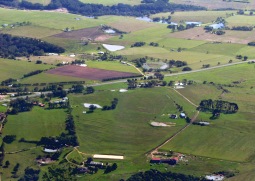
Northern Cape resident Mr Boniface Masiane has told a delegation of Parliament’s Portfolio Committee on Rural Development and Land Reform that it would be discriminatory and undemocratic not to reopen the land claims period to allow those South Africans who missed the 1998 closing date to lodge claims.
Speaking during public hearings on the Restitution of Land Rights Amendment Bill this week, Mr Masiane said the land reform programme would be a failure if some people who lost land through the infamous 1913 Natives Land Act were left out of the restitution process by a democratic government that has made a commitment to reverse the wrongs committed by apartheid rule.
“I support the reopening of the land claims process so that people who missed out can also have an opportunity to lodge claims for their land, which was forcefully taken by the old government as a result of the Natives Land Act of 1913. Let the people get their land back,” said Mr Masiane during public hearings at Postmasburg in the Northern Cape.
Also voicing her support for the intended reopening of the land claims, which the Bill seeks to do, Ms Ida Kock from De Aar thanked Parliament and the portfolio committee for involving the public in processing the proposed law.
The Portfolio Committee on Rural Development and Land Reform is conducting extensive public hearings countrywide on the redrafted Bill, after it was reintroduced in the National Assembly as a Private Members’ Bill by Member of Parliament Mr Pumzile Mnguni. This follows a Constitutional Court judgment that nullified the Restitution of Land Rights Amendment Act of 2014.
Parliament passed the Restitution of Land Rights Amendment Act in 2014 to reopen the lodgement of land claims for a period of five years. Thereafter, the Land Access Movement of South Africa (Lamosa) took the matter to the Constitutional Court, which declared that the Act was invalid, because “Parliament failed to satisfy its obligation to facilitate public involvement in accordance with Section 72 (1)(a) of the Constitution”, in the words of the court.
On 26 February 2016, the Constitutional Court nullified the Amendment Act, citing inadequate public involvement, and gave Parliament two years to rectify the mistake. The court ruled that the public participation by the National Council of Provinces had been inadequate.
On Monday and Tuesday, the committee met with the communities of ZF Mgcawu and Pixley Ka Seme Districts in the Northern Cape, where the Bill received overwhelming support. “[There was] hundred percent support for the Bill and the reopening of land claims. There was not even one person in the hall who was against the reopening of land claims period,” said Mr Mnguni, during a meeting at Thembeni Hall in Prieska, Pixley Ka Seme District.
As a result of the court judgment, all claims that were lodged between 2014 and 2016 have been frozen and will only be processed after the Bill has been passed. During the initial phase of the claims period, which closed in December 1998, only around 80 000 people lodged claims, out of a potential 7.5 million dispossessed South Africans.
Sakhile Mokoena
20 June 2018

